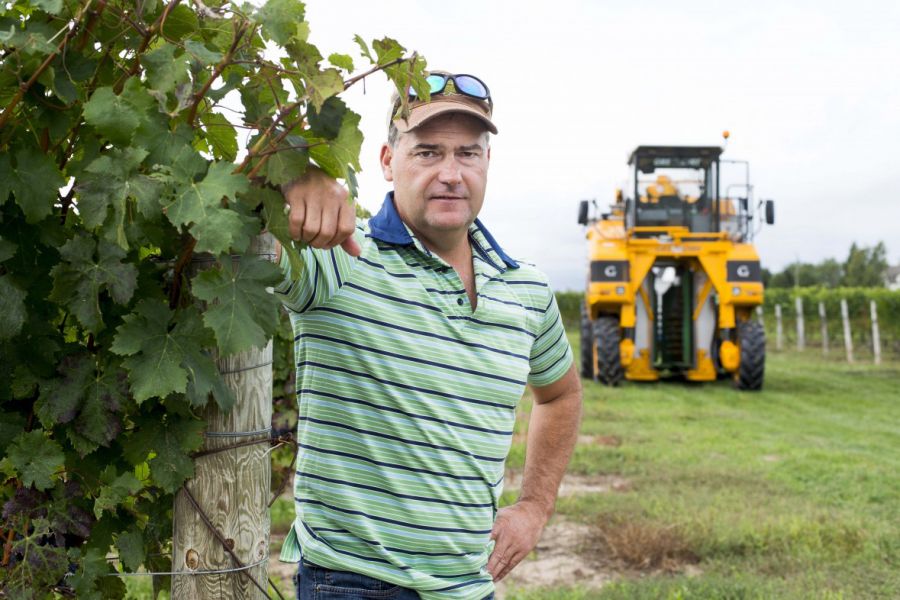Workers alliance outlines long list of complaints including unpaid wages, overcrowding and inadequate food
A new report on conditions faced by seasonal workers alleges a shocking litany of problems on farms.
The report, “Unheeded Warnings: COVID-19 & Migrant Workers in Canada,” was compiled by the Migrant Workers Alliance for Change and alleges violations occurred at farms across Ontario, including Niagara.
Among the complaints:
* Federally mandated quarantine wages were not paid or were clawed back.
* Overcrowding, making social distancing impossible.
* Inadequate access to food and health care.
* Lack of essential supplies, cleanliness, cramped quarters, and the presence of animals and pests.
* Increased racism from employers, local shops and some community members.
* Being forced to work long hours and for weeks without a day off.
The workers overwhelmingly said lack of permanent resident status in Canada prohibited them from protecting themselves against COVID-19, because of fears of retaliation by employers if they complain about housing conditions, access to health care information, or assert their labour rights, the report by the alliance says.
The national report, released Monday, is based primarily on feedback from migrant workers in Ontario. None of the details have been independently verified and the information in the report is largely anonymous.
It was collected between March 15 and May 15, 2020, via calls to an alliance hotline. In all, 180 workers called on behalf of 1,162 workers.
“Because of the nature of surveillance on farms, and the fact that not all workers have access to local phones with credit or wifi connection, it can be difficult for workers to communicate with people off-farm,” the report says. “As a result, individual workers calling on behalf of a group is common practice.”
Two migrant farm workers have died from COVID-19 so far and hundreds have been infected at facilities in southern Ontario, including Pioneer Flower Farms in St. Catharines.
Bill George, chair of the Ontario Fruit and Vegetable Growers Association, would not comment directly on the alliance’s report, noting, “They have an agenda.”
However, he emphasized that during the pandemic farms have undergone spot audits by the federal government and workers were interviewed as part of that procedure.
“If there’s a case where workers weren’t getting paid, then that’s breaking employment law and that individual should be charged,” said George, a grower in Beamsville.
As well, before any workers were permitted on farms during COVID-19, the facilities were inspected by local health officials, the provincial labour ministry and a federal agency, he said in an interview.
“Nobody wants to see an outbreak at a farm and nobody wants to see any deaths from COVID as well, but obviously the virus isn’t discriminating. It does affect everyone in the workplace, whether it be a farm worker or a domestic worker on the farm,” so barriers and physical distancing are being maintained, he said.
Erwin Wiens, a farmer and town councillor in Niagara-on-the-Lake, said pandemic protocols remain unchanged, “We’re making sure that they are being followed. Personally, I’m taking the time out to follow up with some growers just to make sure that everything’s fine, they’ve got everything they need.”
Speaking at a town council meeting Monday night, Wiens emphasized that migrant workers have the same rights as anyone else living in Canada.
All workers receive information packages upon their arrival, outlining their rights and agencies to contact if there are problems.
“Every worker is being contacted on a daily basis to ensure that they are safe, they are healthy and if anything comes up there is a protocol in place for isolation and medical attention,” he told councillors.
If there are some “bad actors” among farmers and they are violating workers rights, Wiens said they need to be reported.
“If anyone is ever aware of any situation, please come forward, so we can keep everybody safe. This is an important issue for the food chain, the workers, the country and the employer.
The 28-page report by the alliance includes several accusations regarding unnamed farming operators in Niagara, including:
* A peach and grape farm in Niagara asked over two dozen workers to sign an agreement saying that the pay during the quarantine period was a loan that they would have to pay back. In a separate incident report, 15 workers were only paid for 30 hours for the two-week isolation period (instead of 60 hours). They were given just one pay cheque of $400 each for two weeks.
* Sixteen workers at a peach and grape farm in Niagara reported receiving only one loaf of bread and a carton of eggs to feed them all for two days. Another vineyard in Niagara provided only two small bags of tortillas and a carton of eggs to feed 20 workers.
* At a flower greenhouse in Niagara, 50 workers who had been in Canada since January were forced to sign an agreement saying they would not leave the bunkhouse – not even for essential items like food and personal supplies. Although many workers did not understand what they were being asked to sign, they were all threatened with termination and deportation if they did not sign.
* A Mexican worker in Niagara told his employer that he was exhausted from working too many hours at a flower greenhouse and was threatened with deportation under the guise that he was breaking COVID-19 protocols.
* At a grape and peach farm in Niagara, 12 workers reported putting in 63 hours a week, working seven days straight, for four consecutive weeks while their co-workers were shut out of the country due to travel restrictions. Workers were not given overtime pay.
The report quotes a worker named Delroy saying, “These people are cruel and I’m tired of them. They have no heart for black people, they use us like slaves. I tried getting away from this farm for a very long time and I cannot.”
Delroy, a seasonal worker for 23 years, asked for a transfer to another farm and was refused.
Another seasonal worker, Joseph, is quoted saying, “Our boss will use this virus to enforce rules he wanted already. He’s using the pandemic as an excuse to get control over us. He shouldn’t be allowed to treat grown men this way.”
The report contains 17 recommendations, the major one being that all migrant workers be given permanent resident status immediately upon arriving in Canada.
Other recommendations include:
* Ensure social distancing and provision of personal protective equipment for all migrant workers, in housing and at work for the entire pandemic.
* Conduct random, unannounced inspections of workplaces, including housing.
* Provide immediate income support to all workers at workplaces impacted by COVID-19 outbreaks.
* That a responsive monitoring and proactive enforcement system be set up, in consultation with migrant worker organizations. It would include swift, unannounced and in-person inspections of employers where complaints have been made, in co-ordination with local public health officials.
* Create a national housing standard so that workers can live safely and with dignity.











